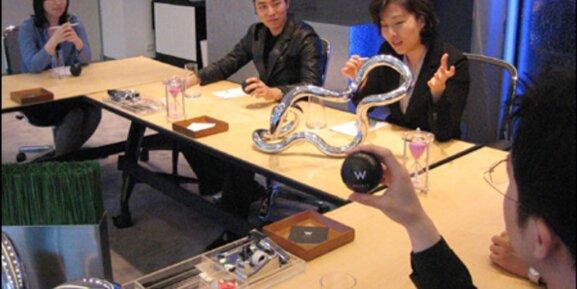Top 10 Hottest New Slangs in Korea
Learning Korean slangs is always a fantastic way to upgrade your Korean skills to the next level. Not only does it help with your listening abilities, but it makes you sound more like a local and less of a robot.Friends will feel closer, jokes will be easier to understand, and you’ll be able to get what is happening in Korean movies more and hear the finer details in songs more clearly. Not bad for only learning a few phrases and words!
These 10 slangs are a mix of words and expressions. And words I try to use in my daily conversations with friends just for fun and to make the conversation more light and funny for both parties. Some are single Korean slang words that you can plug in and use in various situations. Others are expressions that you can use as full sentences. With each slang, I will try to explain how it works in a situation so you can understand what the term means exactly.
Pick the one you think you will use the most, make sure you get the meaning down and try them out with your Korean friends. I bet for sure they will not be expecting to hear you as a foreigner to be so up to date with the newest slangs out there, you will more than likely to hear “Where did you learn that?!”, or “Who taught you that?!”.
남사친
A guy or guy who is “just a friend”(friendzone).
남 is short for 남자, meaning “man”.
사 is short for 사람, meaning “person”.
친 is short for 친구, meaning friend.
Putting these 3 words together, you will get man-person-friend, or male friend (friendzone).You can use the same term for a girl who is your friend but isn’t your girlfriend. If you change the 남 to 여 (여자) you’ve got 여사친. Make sure to not say this to your actual girlfriend or boyfriend they might hit you it.
노잼
Used mostly for when something just isn’t funny, or just down right uninteresting. 노 means “no” , 잼 is the first part of 재미있다 which means ‘to be interesting’.
So something that is boring or simply forcing you to yawn from boredom then you can say “노잼!” and you should get the desired effect of changing to something that will catch your interest.
품절남/녀 (되다)
품절 is another expression for sold out (매진).The words 품절남 and 품절녀 literally denote the meaning ‘sold-out man’ and ‘sold-out woman’, this slang gives out the meaning of somebody who has just got become a husband or wife and is no longer on the market.
It can be used with the verb 되다 which means ‘to become’. For example, 품절녀가 됐어요 means ‘she got married’, or ‘She is off the market now’. To say ‘she got married’ you can also use the word 시집갔어요 literally meaning ‘she went to the in-laws house’. For guys, 장가갔어요 is used.
Someone has been single all their life and never, not even once had a boyfriend or girlfriend This word is the shortened version for 모태 솔로, which is a term used to describe someone who has been “solo” their entire life, since being born.
극혐
Extreme disgust! A very shortened down slang for 극한의 혐오. 극한 means “to be extreme” and 혐오 means “hatred or disgust”, so by putting them together you get a shortened phrase that means extreme disgust. Use this any time you want to point out that something is just to off putting to look at or deal with like when you venture into the weird parts of the internet!
맛점
Simply mean ‘tasty lunch’.Make sure to use to sound less straight and more hip with your Korean friends. Need to sound cool describing your delicious dinner too? Just use 맛저, short for 맛있는 저녁! Shortening things makes talking in Korean easier right?
심쿵
You can used this when you got a huge crush on someone. 심쿵 is like a type of emotional heart attack you feel when you see or think about your love interest or when you find that hottie enormously attractive! Remember it by knowing that 심장 means “heart” and 쿵쿵 is the “thud” or the sound when your heartbeat is throbbing while you admire your crush!
엄친아 / 엄친딸
The shortened down slang for 엄마친구의 아들 (my mom’s friend’s son) or 엄마친구의 딸 (my mom’s friend’s daughter), these phrases are commonly used to describe “the perfect child” or someone who is good at everything and bad at nothing. It came about due to the fact that Korean parents will talk up their children about how “so and so’s” son or daughter did so well on his/her tests, got into a great school or just got a new job at a big company. Bragging rights matters!
현웃
This slang means “laughter (웃음), and in real life (현실에서).” This has the same meaning as “laughing out loud” in English, and can be used while watching a funny clip or during a text conversation with your friend. If you use ㅋㅋㅋtoo much then 현웃 is a nice alternative to show you literally laughed out loud.
된장남 / 된장녀
A person is who more obsessed with their appearance more than anything else and lives beyond their means. 된장 is fermented bean paste that is often found in Korean food. The terms 된장남 / 된장녀 refer to someone who only values expensive or superficial things despite being unable to afford them with their own actual money. Therefore there is girls who date older, richer guys to get free gifts, trips or plastic surgery or a man who lives in the most expensive area of the city despite having a less than stellar job. These terms have negative connotations so use them with caution!
I hope you learned some new interesting slangs from this article. Of course there are many many more slang out there. If you want to stay up-to-date with new slangs then you can try using Naver’s open dictionary (search for ‘오픈사전’) to learn some new words such as 셀카봉 (selfie-stick) or 랜선여친 (online girlfriend – from the word for LAN cable).
What are the slangs that you made caught your interest or made you burst out laughing whilst learning Korean recently?



